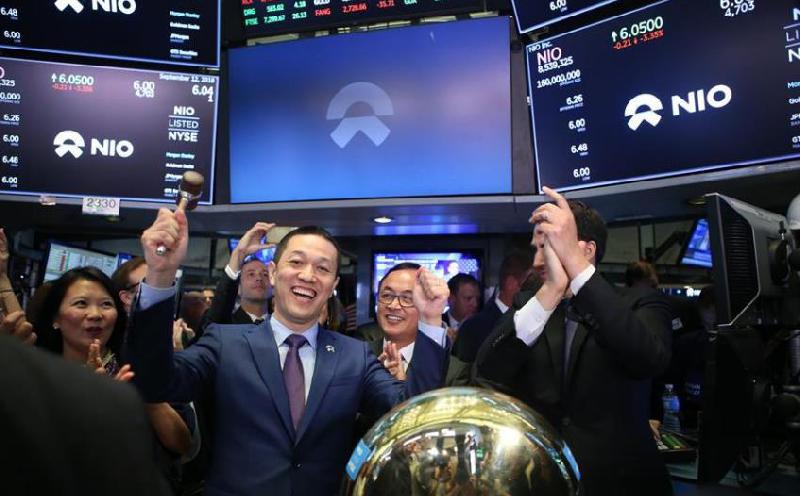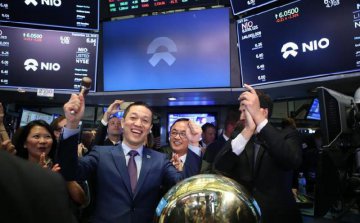
NIO, China’s answer to Tesla, is off to an electrifying start. Its sky-high valuation, however, makes even Elon Musk’s company look like a bargain.
Counting after-hours trading, the share price almost doubled Thursday, two days after the electric-vehicle maker raised $1 billion from an initial public offering on the New York Stock Exchange. That lifted NIO’s market value to $14 billion, topping the likes of Korea’s Kia Motor and Japan’s Mazda Motor .
The appeal is clear: NIO makes high-performance cars and China is the biggest EV market in the world. The government has been that market’s major driving force, and investors are betting that NIO could become Beijing’s chosen national champion. The star-studded lineup of backers includes Chinese technology giants Tencent and Baidu , as well as veteran investors Sequoia and Hillhouse Capital.
But the stock now looks a risky bet. NIO has been generating revenue for only a few months, having started delivering its sole model, the ES8—a seven-passenger sport-utility vehicle with an all-aluminum body—in June. With a price around half that of Tesla’s Model X, it is a money loser for NIO, which burned through $712 million in the first half of the year. At that rate, the company could use up its $1.7 billion of cash on hand by next year—and the pace of the cash burn will likely pick up as it produces more cars.
Reservations and deliveries for the ES8 about match those of the then-new Model S in 2012, according to Bernstein. But at that time Tesla’s market value was only around $4 billion.
Tesla’s current enterprise value equates to 1.8 times its expected 2020 sales, according to S&P Global Market Intelligence. For NIO, that ratio would translate to $7 billion in revenue in two years, suggesting a production pace of 110,000 cars a year—a very ambitious target for a company that last month delivered 1,121 and generated only $7 million in revenue in the first half.
And NIO didn’t even make those cars. Its plants are still under construction and it lacks the required manufacturing licenses, so for now it relies on a state-owned car maker for production. And where Tesla had a head start—it pioneered the high-performance EV market, building a cult following along the way—NIO faces abundant competition from other startups, like Alibaba-backed Xiaopeng Motors, as well as traditional car makers from BMW to Volvo. And Tesla, of course.
Investors should get off the stock when it’s still moving fast.
Source: The Wall Street Journal





















Latest comments